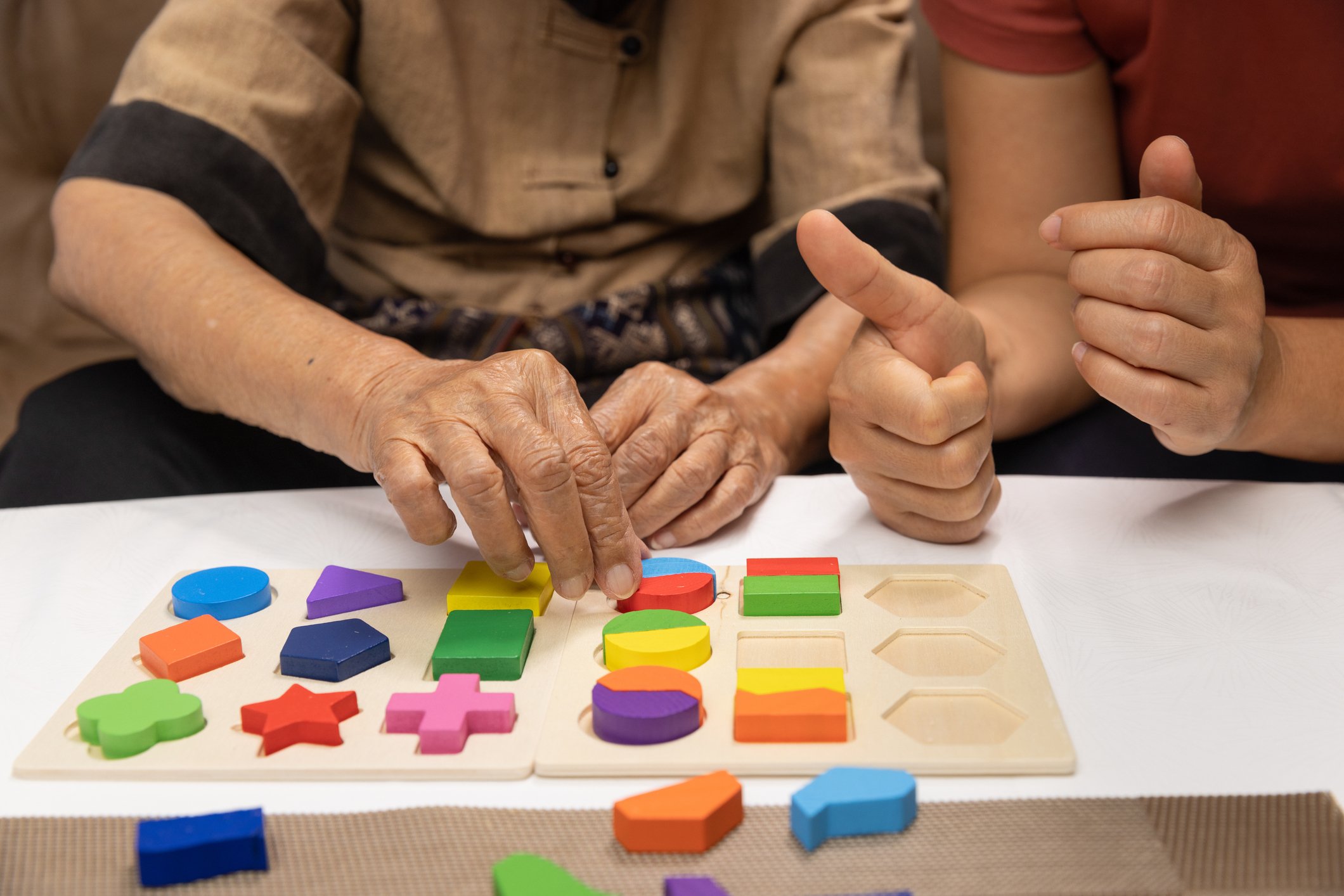The prevalence numbers of diabetes are high and will continue to increase in the coming years. Since lifestyle modifications can have a positive effect on disease progression and metabolic values, self-management promotion is of great importance.
According to IDF estimates, the prevalence of diabetes will grow to approximately ten percent of the adult population by 2035, with type 2 diabetes accounting for approximately 85-95% of this exponential increase [1]. It is empirically proven that an active lifestyle with sufficient exercise and a balanced diet is an important factor in the prevention of type 2 diabetes [2]. Therefore, effective and cost-efficient approaches to promote active lifestyles are important [3].
Active lifestyle and Mediterranean diet as key factors
There is empirical evidence that lifestyle factors of diet and exercise contribute to the improvement of glucose control in type 2 diabetes [4]. Regarding diet, a Mediterranean diet has been shown to be effective in terms of weight reduction and glycemic control [5]. According to a study published in 2018, a low-carb diet leads to a reduction in HbA1c three and six months after baseline, with this effect disappearing after 12 and 24 months [6].
Positive effects of exercise on glycemic control have also been shown. Aerobic physical activity and strength training have been shown to be effective in reducing HbA1c levels [7]. In the consensus recommendations of the American Diabetes Association (ADA) and the European Association for the Study of Diabetes (EASD), supporting patients to implement an active lifestyle with sufficient exercise is anchored in the treatment concept [4]. A combination of dietary changes and physical activity leads to better target values with regard to hyperglycemia and cardiovascular risk factors than dietary changes alone or the inclusion of increased physical activity alone [8].
Is self-monitoring of blood glucose levels useful in type 2 diabetes?
The evidence on the effects of self-monitoring of blood glucose levels in type 2 diabetes is inconsistent. According to recommendations of the Swiss Society of Endocrinology and Diabetology (SGED), self-monitoring of blood glucose is a valuable tool for long-term achievement of metabolic goals not only in type 1 diabetes but also in type 2 diabetes [9,10]. According to a secondary analysis of RCTs published in 2018, self-monitoring of blood glucose in type 2 diabetes without insulin treatment results in a small but significant reduction in HbA1c, with this effect being higher in a structured vs. unstructured form of blood glucose self-monitoring [11].
Evidence-based interventions: personalized and multimodal
According to SGED practice recommendations, patient education and self-management support is an integral part of treatment and is multimodal in structure (box) [12].
With regard to online-based interventions, there are three main efficiency criteria according to current scientific findings: First, a theoretical model should be used as a basis [13–15]. A well-established theory in this context is the self-regulation model, in which both pre-intentional processes (e.g., knowledge acquisition) and post-intentional processes (e.g., barrier management) are considered [16]. According to this model, behavior change is viewed as a goal-directed process starting from personal determinants to goal achievement or goal abandonment [17]. Secondly, the tuning of the intervention to the needs and perspective of the users must be taken into account, which is possible through a participatory approach [18,19]. Thirdly, user behavioral aspects should be taken into account, in this context the coupling of a website with a reminder system has proven to be feasible [20,21].
Literature:
- IDF Diabetes Atlas –8th edition. www.diabetesatlas.org
- Balducci S, et al: Italian Diabetes Exercise Study (IDES) Investigators. Changes in physical fitness predict improvements in modifiable cardiovascular risk factors independently of body weight loss in subjects with type 2 diabetes participating in the Italian Diabetes and Exercise Study (IDES). Diabetes Care 2012; 35(6): 1347-1354.
- Poppe L, et al: A Self-Regulation-Based eHealth and mHealth Intervention for an Active Lifestyle in Adults With Type 2 Diabetes: Protocol for a Randomized Controlled Trial. JMIR Res Protoc 2019; 8(3): e12413. www.researchprotocols.org/2019/3/e12413/
- Davies MJ, et al: Management of Hyperglycemia in Type 2 Diabetes, 2018. A Consensus Report by the American Diabetes Association (ADA) and the European Association for the Study of Diabetes (EASD). Diabetes Care 2018; 41(12): 2669-2701. doi: 10.2337/dci18-0033. epub 2018 Oct 4.
- Esposito K, et al: The effects of a Mediterranean diet on the need for diabetes drugs and remission of newly diagnosed type 2 diabetes: follow-up of a randomized trial. Diabetes Care 2014; 37: 1824-1830.
- Sainsbury E, et al: Effect of dietary carbohydrate restriction on glycemic control in adults with diabetes: a systematic review and meta-analysis. Diabetes Res Clin Pract 2018; 139: 239-252.
- Yang Z, et al: Resistance exercise versus aerobic exercise for type 2 diabetes: a systematic review and meta-analysis. Sports Med 2014; 44: 487-499.
- Franz MJ, et al: Lifestyle weight-loss intervention outcomes in overweight and obese adults with type 2 diabetes: a systematic review and meta-analysis of randomized clinical trials. J Acad Nutr Diet 2015; 115: 1447-1463.
- Schnell O, et al: Addressing schemes of self-monitoring of blood glucose in type 2 diabetes: a European perspective and expert recommendation. Diabetes Technol Ther 2011; 13(9): 959-965.
- SGED: Self-monitoring of blood glucose – Guidelines for Switzerland Recommendations of the Swiss Society of Endocrinology and Diabetology (SGED). Switzerland Med Forum 2013; 13(39): 776-780.
- Mannucci E, et al: Effects of structured versus unstructured self-monitoring of blood glucose on glucose control in patients with non-insulin-treated type 2 diabetes: a meta-analysis of randomized controlled trials. J Diabetes Sci Technol 2018; 12: 183-189.
- SGED: Recommendations on training for persons with type 2 diabetes mellitus. www.sgedssed.ch/fileadmin/files/6_empfehlungen_fachpersonen/63_praxis-empfehlungen/Diabetes-Schulungen_bei_DM2_DE_2014.pdf
- Pal K, et al: Computer-based diabetes self-management interventions for adults with type 2 diabetes mellitus. Cochrane Database Syst Rev 2013; 3: CD008776.
- El-Gayar O, Timsina P, Nawar N, Eid W: A systematic review of IT for diabetes self-management: are we there yet? Int J Med Inform 2013; 82(8): 637-652.
- Webb TL, Joseph J, Yardley L, Michie S: Using the internet to promote health behavior change: a systematic review and meta-analysis of the impact of theoretical basis, use of behavior change techniques, and mode of delivery on efficacy. J Med Internet Res 2010; 12(1): e4.
- Sniehotta F, Scholz U, Schwarzer R: Bridging the intention-behaviour gap: planning, self-efficacy, and action control in the adoption and maintenance of physical exercise. Psychology & Health 2005; 20(2): 143-160.
- Maes S, Karoly P: Self-Regulation Assessment and Intervention in Physical Health and Illness: A Review. Applied Psychology 2005; 54(2): 267-299.
- Yardley L, Morrison L, Bradbury K, Muller I: The person-based approach to intervention development: application to digital health-related behavior change interventions. J Med Internet Res 2015; 17(1): e30.
- Yardley L, Ainsworth B, Arden-Close E, Muller I: The person-based approach to enhancing the acceptability and feasibility of interventions. Pilot Feasibility Stud 2015; 1: 37.
- Eysenbach G: The law of attrition. J Med Internet Res 2005 Mar 31; 7(1): e11.
- Ramadas A, Quek KF, Chan CKY, Oldenburg B: Web-based interventions for the management of type 2 diabetes mellitus: a systematic review of recent evidence. Int J Med Inform 2011; 80(6): 389-405.
HAUSARZT PRAXIS 2019; 14(5): 55-56












